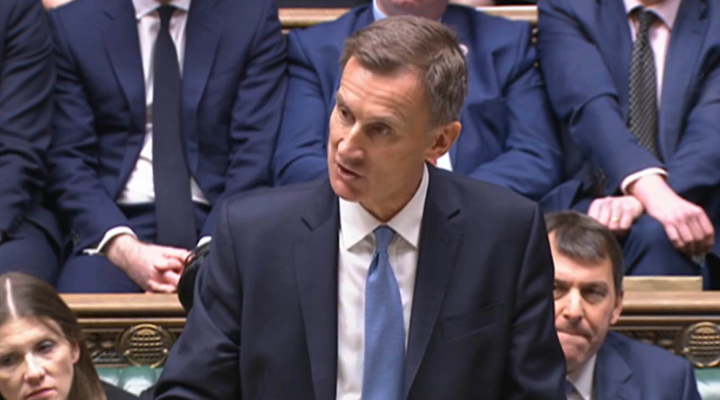
You’ll remember 4 June 2019 well. The prime minister, Theresa May, was hosting US president Donald Trump at a press conference in London, where they toasted the "special relationship" and underlined a joint commitment to "ambitious" post-Brexit trade.
On the same day, the Duke of York himself hosted May and Trump at St James’s Palace for a business roundtable. Like I said, a memorable one.
Things were less sunny in Oxfordshire. In the inauspicious surroundings of the Oxford Business Park on Garsington Road (which plays host to a Premier Inn, a Beefeater, and an Oxfam Superstore) a crisis engulfing "star" fund manager Neil Woodford had finally enveloped his flagship strategy. The game was, as they say, up.
After months of tumultuous wrangling, the Woodford Equity Income fund (WEIF) would be suspended, the final sorry chapter in a saga concerning its ability to manage its illiquid holdings. If accounts of that day are to be believed, Woodford fought to the end to keep the strategy open, knowing full well that closing would "lock in" the disaster for investors.
Illiquid Lunches
In the past week, this story has once more hit the headlines. Link Fund Solutions, which administered WEIF on Woodford Investment Management’s behalf, will now pay out £235 million in additional compensation to investors in the fund. As my colleague James Gard points out, we don’t actually yet know the precise plan for distribution. Nobody who invested in WEIF will be fully happy, but it could be better than nothing. As poor investments go, that might not be too bad. For some it is devastating.
I’ve pondered the centrality of the illiquid assets issue this week as remarks made by chancellor Jeremy Hunt made headlines of their own.
Having spent more than a decade in frontline UK politics, Hunt is now the latest senior politician to tell us that allowing pension schemes to invest in illiquid assets is one of the solutions to unlocking "British" ingenuity, innovation, and – the key word – "growth". Indeed, there were murmurs of this plan in the 2021 Budget, when the Treasury tasked the Department for Work & Pensions with investigating reforms to the defined contribution pension rules.
Advisers have had their say from an investment perspective this week. Though many agree equity investing should be central to any successful retirement plan, the extent to which you allocate capital to that asset class is the subject of a huge debate, particularly when it comes to those approaching and in retirement. Not everyone thinks "lifestyling" your way into safer strategies as you approach the end of full-time work is a good idea.
It follows that allocating to illiquids is an entirely different kettle of chips. And it just so happens with Woodford we have a very recent example of it going seriously wrong.
I will refrain from apportioning specific blame myself, unfamiliar as I am with Mr Woodford personally, and the people in charge of the oversight system we are told failed to protect investors. However, I would like to ask whether there is a coincidence at the heart of this. Back to 4 June 2019.
Terrible Timing
On 4 June 2019 Jeremy Hunt was actually riding high. Not just in his then-role as foreign secretary, but in his candidacy for leadership of the Conservative Party and prime minister of the United Kingdom of Great Britain and Northern Ireland. Because the real backdrop to the Trump visit and the business roundtable was another Westminster crisis.
Theresa May had thrown her majority in the Commons away in 2017, leading to stalemate after stalemate as the country digested how close it had come to having Jeremy Corbyn in Number 10, and how difficult it was going to be to finalise Brexit. Having been talk of the town just three years before, it was suddenly all over.
Hunt would later lose the contest to Boris Johnson, but on that day, things were going well. He had received the endorsement of fellow leadership candidate Liam Fox, the veteran Brexiteer Conservative MP for North Somerset and former defence secretary-turned secretary of state for International Trade (you will remember Fox had stood against David Cameron, David Davis and Ken Clarke in 2005, which made him a "senior Tory" long before he ever held high office).
This narrative matters. It cannot be a coincidence that, on a day where tens of thousands of ordinary UK retail investors were getting dreadful news, Westminster was preoccupied with another popularity contest. We have almost become accustomed to it. The drama that has ensued since makes me even nervier about such a big policy swing – at a time when policy makers would be wise to read the room.
I have wondered about that this week as Hunt stands centre stage once more to say that, in effect, this time it could be different, which is a phrase you never want to hear as an investor. After all, one of the UK’s largest pension funds was a Woodford investor. To that end, we would all be wise to tread cautiously. The dust hasn't even begun to settle on this saga.
With props to Tom McPhail for originally raising this point on Twitter










.jpg)


















